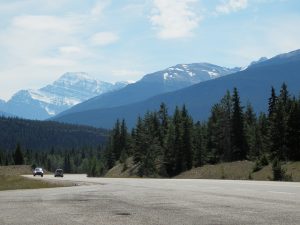7 Tips to Protect your Car on Vacation
Get ready for road-trip season
More fatalities occur on Canadian roads during the summer months than at any other time of year, according to the Canada Safety Council. Whether you’re out for a day trip, travelling to the cottage, or on a cross-country holiday, put safety first when you set out on your travels.
If you spend a certain amount of time driving your vehicle outside of your home province, should speak to your broker – they can give you advice to ensure your auto insurance protection suits your vacation plans.
Even if you fly to your destination and rent a car once you get there, you still need to make sure your coverage protects you. You may need to add an endorsement to your auto insurance policy to cover you as the driver of an eligible rented vehicle. That way you could not have to pay for extra insurance when you sign the rental contract.
 Driving Tips for Road Trips
Driving Tips for Road Trips
To ensure your peace of mind when you hit the road, make sure you do the following:
TIP # 01
Have your vehicle checked to make sure everything is working properly. Repair or replace worn parts, check fluid levels and tire pressure, make sure all lights work, including signal lights.
TIP # 02
Keep your passengers safe by ensuring everyone in your vehicle buckles up properly when you’re driving.
TIP # 03
Drive at a safe speed and with plenty of distance between yourself and the vehicle ahead to decrease the likelihood and severity of a crash. A speeding vehicle requires more time and distance to stop.
TIP # 04
Obey all signs and signals, including speed limits, traffic lights, stop signs and railway crossings. Absolutely never drink and drive.
TIP # 05
Stay alert while travelling for long distances and get a good sleep before leaving on a long trip. Rest stops are important - a break keeps the driver alert and lets the vehicle cool down.
TIP # 06
If you’re carrying or towing a heavy load, make sure your vehicle is properly equipped for the job by referring to your Owner’s Manual. Driving a heavily loaded car or towing a trailer means you need more space to stop or pass, so leave at least three seconds for each six metres (20 ft.) of vehicle length distance between you and the vehicle ahead (more if conditions are less than ideal).
TIP # 07
Share the road and be cautious of cyclists, motorcyclists, and pedestrians. Summer also brings increased construction on our roads and highways so be prepared to stop or slow down.